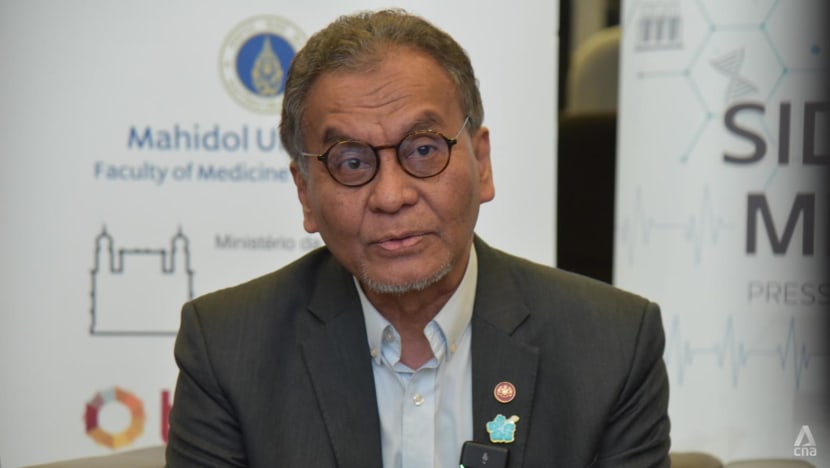Malaysia ‘moving towards’ ban on vapes in phases: Health Minister
Dzulkefly Ahmad did not give a timeline on the implementation but said his ministry has conducted detailed discussions with other government agencies.

KUALA LUMPUR: Malaysia is “moving towards” a total ban on the sale and use of vapes as part of efforts to curb their misuse, said Health Minister Dzulkefly Ahmad.
He added that the implementation will be carried out in phases, beginning with a ban on open-system vapes, before being expanded to cover all types of vape products.
Open-system vapes allow users to manually refill the device with any liquid or substance, unlike closed systems which use pre-filled pods.
Dzulkefly was giving a written reply on Tuesday (Sep 9) to a parliamentary question from Senator Baharuddin Ahmad, who asked whether the government is prepared to ban vape sales, in line with measures taken by several state governments, to better safeguard public health against harmful diseases.
The health minister did not give a timeline on the implementation, but added that as an initial step, his ministry has conducted detailed discussions with other government agencies.
“The outcome of these deliberations and the proposed implementation plan will be presented to the Cabinet for policy approval, which will form the basis for the full ban on electronic cigarettes or vape in Malaysia,” he said.
He added that the Health Ministry supports the move by six state governments - Johor, Kelantan, Terengganu, Perlis, Kedah, and Pahang - not to issue or renew vape sales licences through their respective local authorities.
"This is a proactive approach aligned with the objectives of national public health," he said.
Local media had cited Dzulkefly as saying last month that his ministry would table a Cabinet Memorandum on a ban of electronic cigarettes and vaping by the end of the year.
The Star reported on Aug 23 that he had told reporters that his ministry had tabled a preliminary proposal report prepared by an expert committee at the Cabinet meeting that day.
"I made a brief presentation of the proposal report. The Prime Minister (Anwar Ibrahim) and the Cabinet have asked me to submit a Cabinet Memorandum towards banning vaping,” he was quoted as saying.
"As I have always said, it is not a matter of ‘if’, but ‘when’. I am responsible for fulfilling this directive, and the question now is the method, timing, and approach," he said.
Two days earlier, news outlet Free Malaysia Today (FMT) reported him as saying that the ban could pose legal challenges for the government, so it would avoid making such a move for now.
Dzulkefly had reportedly said that with the passing of the Control of Smoking Products for Public Health Act 2024 (Act 852) on Oct 1 last year, the vape industry is now legally registered and regulated.
“At the time, we made it clear that the industry would have to register and be regulated comprehensively,” FMT quoted him as telling the House of Representatives on Aug 21.
“This has created a ‘legitimate expectation’ under the law, meaning that if we now impose a sudden ban after establishing Act 852, we must be ready to face possible legal challenges.”
Act 852 bans the sale of tobacco and vape products to minors and regulates advertising, packaging, labelling, point-of-sale displays, as well as online sales of such products.
Earlier this year, the health minister had said that the country was ready to revisit banning vapes, even if it was a belated attempt.
Dzulkefly had said then that despite plans by his predecessors as early as 2015 to ban vaping, Malaysia had missed the boat on enacting total restrictions like in Singapore, Thailand and Brunei.
Singapore has been stepping up enforcement against vaping, with stepped-up checks at the country's air, land and sea checkpoints as well as in various parts of the island.
Harsher penalties for vaping offences also came into force on Sep 1, with etomidate - the anaesthetic agent that has been found in vapes - listed as a Class C drug under the Misuse of Drugs Act.














